Department Introduction
 > Introduction > Department Introduction
> Introduction > Department Introduction
What is Earth System Science?
Earth System Science is a study of composition and distribution of earth materials, structure of the Earth, tectonic mechanisms and the changes generated by these mechanisms. These disciplines are utilized in providing basis for the history and evolution of Earth, and to provide foundations for sustainable development, utilization and conservation of natural systems. With an increase in global interest for environmental preservation, resource development and development of earth information system, Earth System Science is developing into a multidisciplinary study leading the 21st century.
Department Introduction
Department of Earth System Sciences in Yonsei University seeks the following as its main goals:
- Research of the creation of Earth, as well as ‘when’, ‘how’ and ‘why’ it was developed to its current state, to illuminate the history of Earth’s evolution.
- Identification of Earth’s composition and structure from its crust to core.
- Training of individuals who can apply their knowledge of the earth system to provide solutions for conservation, sustainable development and utilization of the “Earth Environment” in the near future.

- Seismology and Geophysics Laboratory 지진학 및 지구물리학 연구실
- Seeks to apply seismic or geophysical techniques to conduct research on physical material properties, internal structure of the earth and sources of earthquakes, and to develop new geophysical expedition methods.
- Hydrogeology Laboratory 지하수 연구실
- Researches optimized management strategy for efficient development, contamination prevention and maintenance of groundwater resources, along with development of method to monitor changes in groundwater environment, via usage of geochemical monitoring and mathematical statistics.

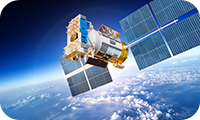
- Remote Sensing Laboratory 원격탐사 연구실
- Utilizes satellite-based method for exploration of earth surface, along with research on technological development and their application.
- Mineralogy lab 광물학 연구실
- Aims to synthesize new nanomaterials and develop their application as advanced materials, based on characterization of nano-minerals within the earth system along their formation mechanisms.
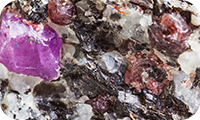
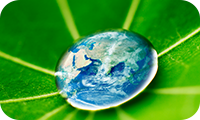
- Environmental Geochemistry Laboratory 환경지구화학 연구실
- Environmental Geochemistry Laboratory conducts researches on geochemical transport and reactive pathways within natural or test systems.
- Structural Geology and Tectonics Laboratory 구조지질 및 지구조 연구실
- Structural Geology and Tectonics Laboratory researches kinematics and mechanics behind formation of varying scale of deformational structures.

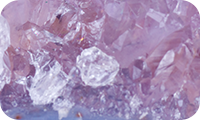
- Crystallography Laboratory 결정학 연구실
- Studies physio-chemical properties of materials within high pressure and temperature conditions by utilizing X-ray free-electron laser.
- Biogeochemistry Lab 생지구화학 연구실
- Studies bacteria-mineral interactions at extreme environments, and biogeochemical reaction mechanisms and biomarkers associated with these interactions.

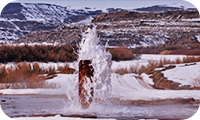
- Geologic Fluid Dynamics and Geofluids Laboratory 지질유제역학 연구실
- Utilizes numerical analysis for research of geofluid migration, fluid phase change, and interactions between geologic fluid and media within subsurface porous media.
- Geodynamics Laboratory 지구동력학 연구실
- Study on subduction zone using numerical modeling
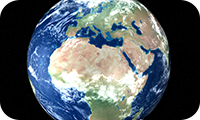
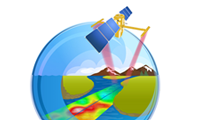
- Satellite Geosciences Lab 위성지구과학 연구실
- Research of satellite data and remote sensing techniques to study Earth’s natural processes and systems
- Geoecology Laboratory 지구생태학 연구실
- Geoecology is an interdisciplinary field of study that combines principles and methods from geology and ecology to investigate the interactions and material cycles between living organisms (biosphere) and their physical environment (lithosphere, hydrosphere, and atmosphere).
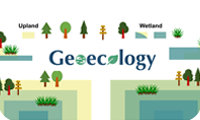
Earth System Sciences Research Center (ESSRC) is leading the joint research between different academic disciplines. As a ‘university centered research laboratory’ designated by National Research Foundation of Korea, ESSRC is performing multidisciplinary studies on earthquake disasters, as well as providing solutions for numerous issues humanity faces today, including natural disasters, environmental maintenance and resource explorations. In addition, ESSRC endeavors to provide scientific explanations and recovery techniques for various factors with impacts on natural and anthropogenic environments.
Post-graduate Prospects and Career
Earth system science (ESS) allows for research of the Earth using approaches based on physical, chemical, biological, computational, mathematical and other disciplines. In addition, high applicability to structural engineering and civil engineering offers options for pursing a double major; hence, individuals studying ESS is given freedom in the choice of scientific approach used in their research, as any of these fields can play an essential role. Similarly, to the diversity of approach to understand ESS, the career choices from majoring ESS is diverse. In the case that a graduate decides to continue their academic career, they can continue doing so by participating as a professor or as a researcher, contributing to ongoing development of ESS. Alternatively, individuals may pursue a career in industrial field, with graduates working for government-owned organizations related to resource and energy (e.g. Korea National Oil Corporation and Korea Electric Power Corporation), engineering and construction groups for corporate entities (e.g. Samsung C&T, Hyundai Engineering & Construction, and SK E&C), environment-related research and industrial institutions, and information industries applying GIS and other satellite-based techniques.

동문회 명단에 있는 총 592명을 대상으로 조사한 결과
이 중 246명 (41.6%)이 졸업 후 전공분야에 진출한 것으로 나왔으며 나머지 %는 위의 값을 기준으로 계산
(단, 최근 졸업생들 중 동문회에서 추적이 안되는 이들은 계산에서 누락됨)










